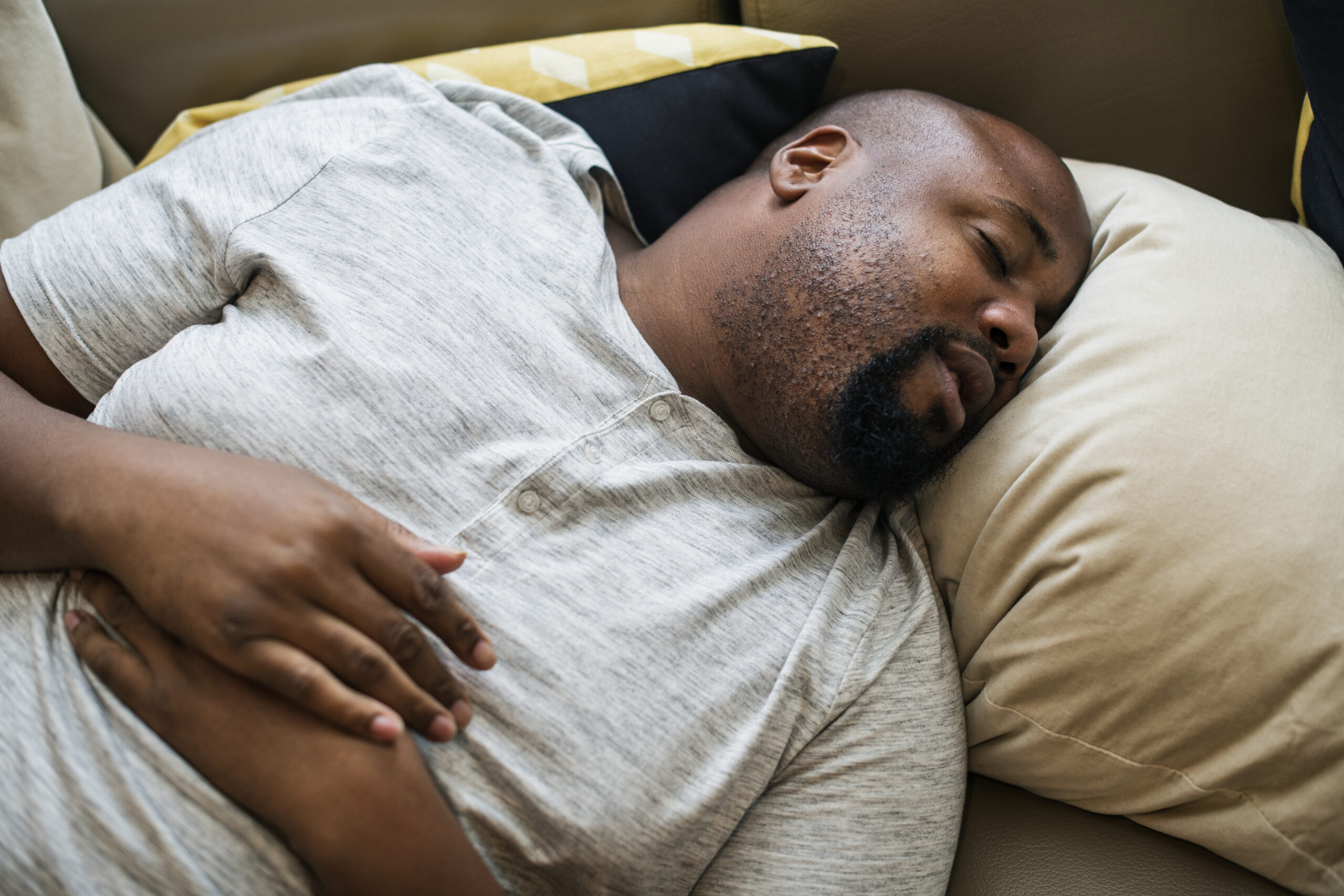
woman sleeping in bed (Courtesy of freepik.com)
Courtesy of freepik.com
 Over the past few years, the subject of couples sleeping apart from one another has become a hot topic in the media, so much so TheList.com published a roundup of celebrity couples who’ve slept in separate beds. Though the arrangement is fairly common — a January 2023 survey of 2,200 Americans conducted by the International Housewares Association for The New York Times found one in five couples sleep in separate bedrooms, and nearly two thirds of those who do, do so every night — the use of the term “sleep divorce” to describe the practice has raised questions about whether separate beds is a fast track to permanent separation.
Over the past few years, the subject of couples sleeping apart from one another has become a hot topic in the media, so much so TheList.com published a roundup of celebrity couples who’ve slept in separate beds. Though the arrangement is fairly common — a January 2023 survey of 2,200 Americans conducted by the International Housewares Association for The New York Times found one in five couples sleep in separate bedrooms, and nearly two thirds of those who do, do so every night — the use of the term “sleep divorce” to describe the practice has raised questions about whether separate beds is a fast track to permanent separation.
Related Articles:
Sleep Together, Stay Together: How Sharing a Sleep Schedule Could Increase Intimacy
What I’ve Learned After 29 Years of Marriage
Nonsexual Ways to Build Intimacy
“Society has a framework for what things should look like, and there’s a lot of black-and-white thinking about partners who don’t sleep together, but really, there’s a lot of gray area and a lot more involved,” licensed professional counselor Anna Marie Boyd told AARP.

Courtesy of freepik.com
One such factor is practicality. A January 2023 SleepFoundation.org survey of 1,250 U.S. adults found that 52.9% of respondents who’ve implemented a sleep divorce say it improved their sleep quality. That figure tracks with the 15% of respondents who cited accommodating different sleep schedules as the primary reason for sleeping separately from their partner in the past year.
Still, the most-cited reason for sleeping apart was relationship issues— noted by 25.8% of respondents—a scenario that can lead to larger problems down the line.
“Without a shared space for reconnection, partners may find themselves easily detached, avoiding each other and ultimately not resolving their issues,” Katie Bingner, a licensed counselor and communication coach, told Insider.
Her insight underscores a key determining factor of whether a sleep divorce will hurt or hinder a union, as Dr. Peggy Loo, Director of Manhattan Therapy, explained to Architectural Digest: “What matters most is whether the arrangement is by mutual agreement or somehow in service of the relationship.”
So how does one do that? Check out the tips below for guidance on how to ensure separate beds enhances not only your individual sleep quality but the strength of your partnership.
1. Have a conversation: It’s important to discuss your reasons for wanting to sleep separately from your partner before creating that physical space in the bedroom at night. “How you handle sleep issues in a relationship is how you’re going to handle every other charged issue in your couple hood,” psychotherapist Ken Page told OprahDaily.com. “Communication becomes key.” If you have children, you’ll want to explain your new sleeping arrangement to them as well to calm any potential concerns about the status of your relationship and your overall family unit.
2. Be intentional about connecting with one another in other ways: “Intimacy starts outside the bedroom, and a couple sleeping separately doesn’t have to inhibit or lessen intimacy,” relationship strategist Elizabeth Overstreet told Brides.com. “A couple with one partner with a love language around physical touch can find other ways to show this affection outside of sleeping together via holding hands or being affectionate in different ways, etc. It’s about intention, discussing one another’s needs, and reaching a happy medium.”
3. Be flexible: 25.7% of respondents to a 2022 Sleep Foundation survey who started sleeping separately ended up sharing a bed again, or re-coupling. Know that even if you and your partner agree to catch Zs apart from each other for a while, it doesn’t have to be a permanent thing or even something you do every night. Embrace what comes naturally to you on a daily basis and discuss any feelings about your arrangement that might be changing.

Courtesy of rawpixel.com
Though societal standards may suggest a healthy union only looks one way, at the end of the day you and your partner get to make the rules for your personal relationship, and that includes where you each lay your heads at night. “Ultimately, what matters is keeping a relationship fortified with a healthy balance of emotional and physical intimacy,” licensed marriage and family therapist Jamie Schenk DeWitt told Newsweek. “Every couple has a different percentage of what they need in this department. If each person feels fulfilled, then drifting apart will be less likely.”
Related Articles
When Elitia and Cullen Mattox found each other, they decided that they wanted their new relationship together, their union, to be healthier and different.
Let’s dive into the role spirituality plays in Black love—and why it might just be the secret sauce keeping many of our relationships strong.
Ryan Léon and Lauren McElroy-Léon reconnected with the help of Tawkify, a personalized matchmaking service.






